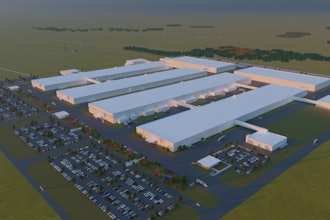The International Telecommunication Union (ITU) recently organized an international workshop centered on Internet of Things (IoT) standards at its headquarters in Geneva, Switzerland. ITU defines IoT as a “global infrastructure for the information society enabling advanced services by interconnecting (physical and virtual) things based on existing and evolving, interoperable information and communication technologies.”
There are several definitions of open source. The Open Source Initiative (OSI) website contains a very useful and detailed definition, which goes beyond access to the source code and includes ten specific criteria concerning the distribution terms of open-source software. We will not enter here into the ongoing debate concerning the differences between open source and free software, as the OSI website provides a short review of the terms.
For some, open source is central to the Internet, as underscored by the Open Source Project, a site maintained by IoT tracking company Postscapes. To them, “the open source movement is in some ways the spiritual core of the Internet, encompassing much of the hardware, software, and protocols that make up the global communications infrastructure — as well as championing openness, transparency, and the power of collaborative development.”
Whether it is an innovation engine, or the actual level playing field (as argued during the above ITU conference), open source is growingly viewed as a credible game changer for IoT. The open source movement has progressively engulfed IoT, which did not have even have a name when Linus Torvalds released the source code for Linux in 1991.
Now the open source IoT comprises a long list of players with different sizes, geographic scope and history. In addition to large companies, this motley assortment includes a broad array of young entrepreneurial companies and projects. It also includes fora, consortia and research groups dedicated to the advancement of open source IoT.
The open source approach is also widening its reach to go beyond applications and include data storage, networks and hardware.
The Internet of Things, according to Rackspace CTO John Engates, “also means the cloud is more important than ever.” For example, founded by Rackspace Hosting and NASA, and now joined by over 180 companies, OpenStack is a global collaboration of developers and cloud computing technologists producing the ubiquitous open source cloud computing platform for public and private clouds. OpenStack’s high configurability is argued to be a good fit for the continuously-morphing Internet of Things.
Another somewhat related open source initiative is the recent creation of OpenDaylight, which is an open platform for network programmability to enable software-defined networking (SDN) and create a solid foundation for network functions virtualization (NFV) for networks at any size and scale. These network capabilities could become critical in an IoT architecture.
Open source hardware is also rapidly taking off. The Open Source Hardware Association (OSHWA) defines it as “a term for tangible artifacts — machines, devices, or other physical things — whose design has been released to the public in such a way that anyone can make, modify, distribute, and use those things.” The definition is accompanied by ten criteria.
A list of some popular boards and development platforms for the Internet of Things can be found on the Postscapes website.
It is noteworthy that open source electronics is a key component of the software-defined supply chain, which, according to a recent report from the IBM Institute for Business Value, is at the root of the forthcoming disruptive transformation of electronics design and manufacturing (and, consequently, the Internet of Things):
“Companies and individuals are publishing open source hardware designs using standardized components and developing open source software platforms that replicate typical embedded system functionality. The same positive cycle of peer review and reputation building works as it does for open source software. Indeed, where just a few years ago consumers were sharing just 20 to 50 new open source product designs every month, today we count more than 30,000 new designs every month.”
Open source has been forcefully debated in many places. However, it seems that the odds are currently in favor of its accelerated adoption. In fact, it has been predicted that 2014 will be a banner year for open source, particularly in the Internet of Things arena.
For many years, although rich with promises, IoT has been accused of being more hype than reality. Since developers have limited time and money, the argument was made that the optimal way to engage them is through complete openness.
Furthermore, as emphasized during the workshop’s open source session, “IoT is still immature and feedback from vertical markets with an ability to develop quickly” would be critical to IoT evolution. Open source can address this industry requirement.
As a result, open source advocates argue that barriers to innovation would be lowered. Open source’s rapid iterations and ease of contributions are viewed as the right framework to help overcome IoT’s inherent complexity, effectively address its security, privacy and trust challenges and spur its growth.
There is no doubt that whether it is free of charge, or free of obstruction, “free” is vividly appealing. However, sooner or later, the piper has to be paid. New business models must be designed to generate an attractive return on the invested intellectual energy.
It is not an impossible task. Recent history serves to remind us that openness does not mean profitless. The Internet, which is fundamentally based on the existence of open, non-proprietary standards has created a prodigious amount of wealth by leveraging unimpeded access to a mass market. This is perhaps a roadmap worth considering for the Internet of Things.
Jeff Evans is the Director of the Information and Communications Laboratory (ICL) at the Georgia Tech Research Institute (GTRI), the applied research arm of the Georgia Institute of Technology (“Georgia Tech”), Atlanta, GA, U.S.A. He chaired the open source session of the International Telecommunication Union (ITU) Internet of Things Standardization Workshop, which was held on February 18, 2014, in Geneva, Switzerland with participants from around the world.
Alain Louchez is the Managing Director of the Center for the Development and Application of Internet of Things Technologies (CDAIT) at Georgia Tech. He was the chairman of the Steering Committee of the February 18, 2014 ITU Internet of Things Standardization Workshop.



















